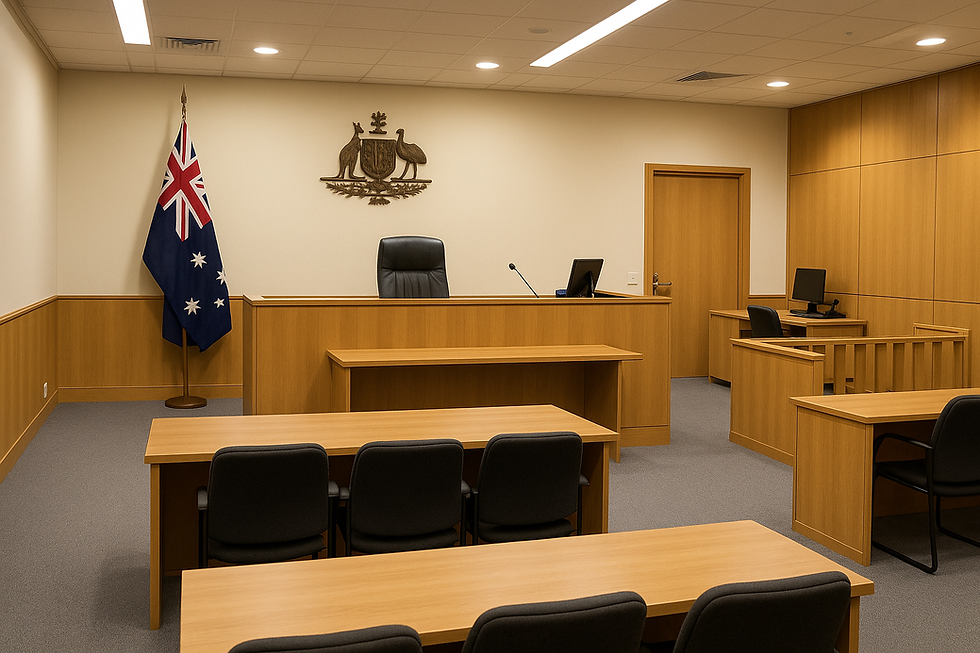Family Violence and Cross Examination
- Jarrod Carter
- Apr 4, 2022
- 3 min read
Updated: Apr 27, 2022

Pursuant to new restrictions, personal cross-examination at trial may be banned in family law proceedings where there are allegations of family violence. The new protections apply to various different circumstances, and aim to provide further protection for victims of family violence by limiting the possibility of re-traumatisation.
What is cross examination?
During trial, cross examination is the process of asking a witness questions about their evidence. These questions can be probing, leading, aggressive and offensive. The opinions of a jury or judge are often changed if cross examination casts doubt on the witness. On the other hand, a credible witness may reinforce the substance of their original statements and enhance the judge’s or jury’s belief. Though the closing argument is often considered the deciding moment of a trial, effective cross-examination wins trials.
Cross examination can be a stressful event. Witnesses are often accused of lying and must defend their original evidence. It is a particularly stressful experience for a victim to be cross-examined by someone who has perpetrated violence against them.
Pursuant to section 102NA of the Family Law Act 1975 (Cth), perpetrators of family violence may be banned from personally cross examining their victim.
When can an order preventing personal cross examination be made?
Under section 102NA(1)(c), one party can be prevented from cross-examining the other party if there is an allegation of family violence and:
either party been convicted of, or charged with, a violent offence or a threat of violence against the other party;
a final family violence restraining order applies to both parties;
an injunction protects one party from the other party; or
the Court chooses in its discretion to make the order.
If any of the circumstances outlined in subsections (i) to (iii) apply, the Court will make an order preventing the perpetrator from personally cross-examining the witness.
However, it is often the case that subsections (i) to (iii) do not apply. In these circumstances, a party may ask the Court to make the order in its discretion, pursuant to subsection (iv).
In order to convince the Court to exercise its discretion, there must be significant evidence to convince the Court that, in the event that the perpetrator personally cross examines the other party, that party would be unable to provide full and honest evidence due to their fear.
The threshold of evidence required to convince the Court to exercise this discretion is very high because, if an order preventing personal cross examination is improperly made, it would significantly limit the other party’s right to a fair trial. When considering whether to exercise this discretion, the Court weighs the right of one party to be able to present the best evidence possible, with the other party’s rights as a self-represented litigant. As such, there is always the possibility that the application could be unsuccessful.
Due to the complexity of this section and the significant burden of proof, particularly if you intend to rely upon the Court’s discretion, it is important to consult a lawyer about the significant evidence required for a section 102NA order, and the application’s likelihood of success in your particular circumstances.
What happens if a section 102NA order is made?
In the event that the application is successful, the perpetrating party would be unable to personally cross-examine the other party and their witnesses. In such circumstances, that party could engage a private lawyer to act on their behalf at trial. Alternatively, they could seek the assistance of a Legal Aid lawyer, pursuant to the Commonwealth’s Family Violence and Cross Examination of Parties Scheme. Under this scheme, a Legal Aid lawyer could be allocated to conduct cross examination on behalf of the party who is unable to conduct cross examination personally. While qualification for this scheme is not means or merits-tested, the limited party might not be required to financially contribute to this representation, depending upon their financial circumstances.
While there are obvious disadvantages to a perpetrator of family violence being able to personally cross-examine their victim, there are also some compelling advantages that would be beneficial at trial, particularly from a strategic perspective. As these advantages vary from case to case, it is important to seek legal advice specific to your circumstances to help you decide whether a section 102NA order would be advantageous to you.
At Carter Dickens Lawyers, our lawyers have significant experience in family law matters with issues of family and domestic violence. In the event that you require further information about the issues discussed in this article, please do not hesitate to contact our office.
Please note that the above is general information and should not be relied upon as legal advice. All situations are different and legal advice must always be tailored to the specific situation.




Comments